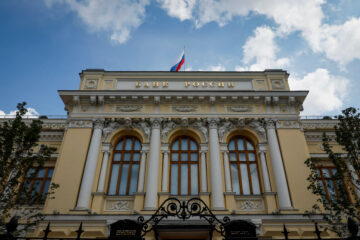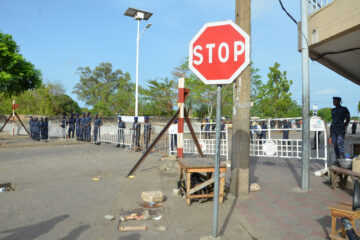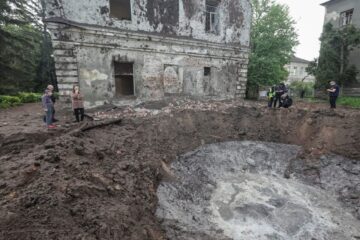Divided EU leaders to offer cash for Syria refugees
The EU\’s president urged leaders gathering for an emergency summit Wednesday to stop fighting over a refugee quota deal and take urgent action to secure the bloc\’s borders in the face of "millions" of migrants. Donald Tusk, head of the European Council, called for an end to "the cycle of mutual recriminations and misunderstandings" fuelling the split between the EU\’s richer west and poorer former communist east.
European Union leaders could promise billions of euros in new funding for Syrian refugees at an emergency summit on Wednesday where they will also try to patch up bitter divisions over the migration crisis.
Meeting for dinner a day after interior ministers overrode furious objections from four eastern states in a vote that will distribute asylum-seekers around the bloc according to mandatory national quotas, government leaders will try to focus on ways to curb the inflow of migrants that has hit records this summer.
But feelings are running high as chaotic crowds and varied responses from national capitals have seen borders close inside Europe\’s cherished passport-free Schengen zone and diplomats expect "theatrics" from some of the 28 leaders as each seeks to shore up domestic support in the face of fears of immigration.
"Today … a concrete plan must finally appear in place of the arguments and the chaos we have witnessed in the last weeks," said European Council President Donald Tusk, who will chair the 28 leaders\’ first full EU summit in three months.
On a day when the Greek island of Lesbos saw 3,000 people land in dozens of dinghies from Turkey, Tusk said arrivals that already exceed half a million this year were likely to increase and that Europe must "regain control of our external borders" or risk destroying the Schengen system and the "European spirit".
He forecast agreement on more help for refugees who stay in the Middle East, via funds for U.N. agencies, Turkey, Jordan, Lebanon and others. "Frontline" states like Greece and Italy should also get help on their frontiers – notably to register new arrivals and deport those who do not qualify for asylum.
Around the Council table, German Chancellor Angela Merkel may face criticism of her move last month to take in more Syrians, an action some say fueled the inflow.
The German leader stressed on arrival that it was time for Europeans to work together. "Faced with a great challenge, it cannot be that Europe says \’We can\’t handle this\’," Merkel said.
"That\’s why I say again and again: We can do this."
Re-elected Greek Prime Minister Alexis Tsipras and Italian Prime Minister Matteo Renzi will hear calls from the north to use new EU support — both in money and manpower — to tighten controls on the bloc\’s Mediterranean frontiers.
Establishing a principle of "relocating" some asylum-seekers has been a key demand of Rome in particular, which wants to end a rule that states they should remain in the first EU state they enter. Northern countries accuse Italy and Greece of undermining the Schengen area by simply letting migrants move on unchecked.
Renzi said a package of EU-run relocations and deportations and EU-funded frontier forces meant Rome\’s partners had finally accepted demands it has been making for years to spread the load of migrant arrivals from Africa onto southern Italian islands.
Hungary\’s prime minister, Viktor Orban, was expected to offer a typically robust defense of the razor-wire fencing he has erected to keep out migrants and his view, shared in some other ex-communist states, that Muslim immigration is unwelcome.
He insisted he was only following EU rules and said that if Greece could not defend its borders, Athens should ask for help.
His Slovak ally, Prime Minister Robert Fico, said he would challenge in EU courts Tuesday\’s rare majority-vote decision to impose quotas on states for taking in up to 120,000 asylum-seekers, mainly from Italy and Greece.
"We have been refusing this nonsense from the beginning, and as a sovereign country we have the right to sue," Fico said.
However, many leaders and the EU officials organizing the summit — which will not take formal legal decisions — are keen to put the row over "relocation" behind them for now.
Collectively, national leaders may be chided by Jean-Claude Juncker, the EU\’s chief executive whose Commission named 19 countries for breaches of EU asylum laws: "One of the reasons why the asylum system … isn\’t working is because member states do not apply it," said Juncker\’s deputy, Frans Timmermans.
Turkey, locked in a long love-hate relationship with Europe and through which the bulk of the summer\’s migrants have reached Greece, may hear promises of up to 2 billion euros to help build schools and provide for the welfare of the 2 million Syrians it has accommodated from the civil war.
US President Barack Obama had on Tuesday pressed European nations to take their "fair share" of refugees, despite accusations that Washington has done little to address the crisis.
With millions of Syrians forced into camps across the Middle East, tens of thousands crossing Europe on foot and hundreds washing up dead on beaches, America has promised to take in at least 10,000 Syrian refugees next year.
That figure is dwarfed by a million asylum seekers that Germany is expecting to welcome by the end of this year.
SOURCE: REUTERS and agencies
[do_widget_area inner_adsbar]








